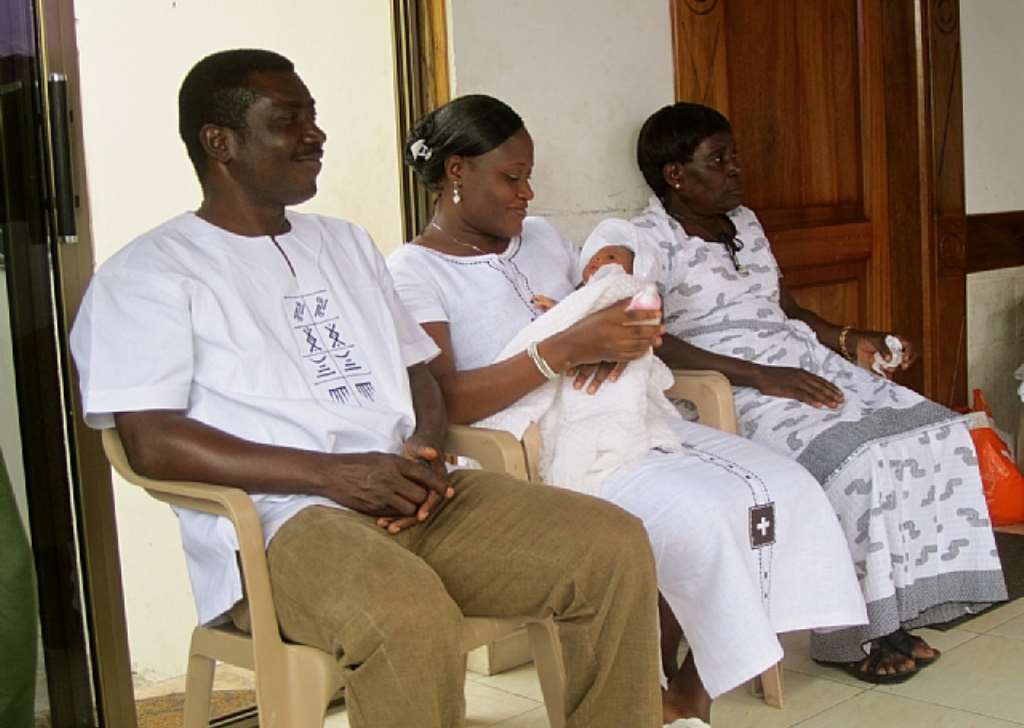
The Akan people
The Akans are the largest ethnic group in Ghana. They comprise a cluster of peoples living in the Southern and Central Ghana. They share a common language, known as Twi, which has many dialects.
These are Asante, Akuapem, Akwamu, Fante, Akyem, Agona, Assin, Denkyira, Twifo, Wassaw, Kwawu, Bron and Buem.
Names have cultural and social contexts that identify the bearer, therefore, the Akans have a maxim that says, ‘it is because of criminal acts that names were shared’—meaning every person has a name that solely differentiates him or her from others.
The adinto or abadinto (lit., “to throw [a] name”) or naming ceremony takes places usually at the father’s house of the child on the eighth day, basically a week after and on the day the child was born.
A child born on Sunday, for instance, would have his or her naming ceremony on the following Sunday. He or she would be given the first name Kwasi (male) or Akosua (female). The child’s first name (kradin) is given based on the Akan week (nnawɔtwe).
Why the seven days wait? It’s to ensure that the child is in to stay and will not prematurely depart. The infant is considered as a visitor or a stranger until the day he’s named.
Items such as gin (nsa), two glass cups (nkuruwa), a bottle (nsuo), mat, calabash, broom for young women and cutlass for boys are gathered before the day of the naming ceremony.
Two leaders of unquestionable character are deployed from the father’s family to go fetch the child and the mother. An elder is chosen to perform the ceremony—a male for a male child and conversely.
The child’s mother prepares herself and the infant, the morning of the ceremony, both dressed in white apparel. They stay indoors until the ceremony commences. Sacred beads are put on the child, as well as, marks relating to the ceremony on both mother and child.
The ceremony begins with an opening libation (mpaeɛ) poured by an elder who announces the occasion and its purpose. The drink used for the libation is provided by the family of the child’s money. The libation is poured at every doorstep and the main entrance to the house. A second libation soon follows the first. This time, the family of the child’s father will provide the drink.
The child is brought out naked after the libation and placed on a prepared area on the ground. Immediately everyone is settled, a male or female elder pick the child to his or her lap.
Both water and gin will be poured into separate glasses. The said elder on whose laps the child is, dips his or her forefinger into the gin with the help of a leaf and drops it onto the child’s tongue, saying: ‘When we say that it is gin (symbolic of untruth), say that it is gin’—he does that three times. Same applies with the water with the line—”when we say that it is water (symbolic of truth), say that it is water.’
This is very important as it serves as a piece of advice to the child in seeking and being truthful. The child’s name is then whispered to the elder by the father and then the former will inform the child; “we will call by this name….”
Examples of the names a child could be given are Odeneho (one who is independent); Bekoe (this is a child who came to fight); Katakyie (this is a very strong man), among others.









